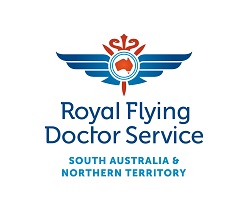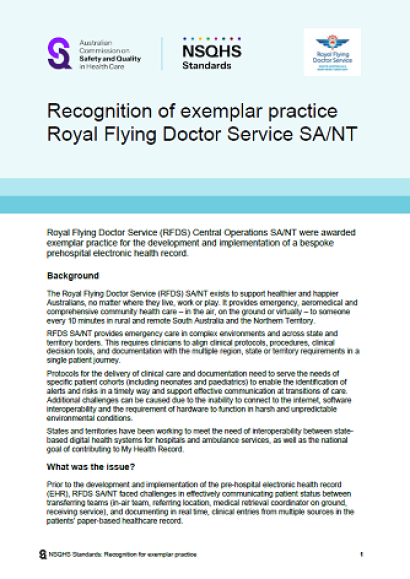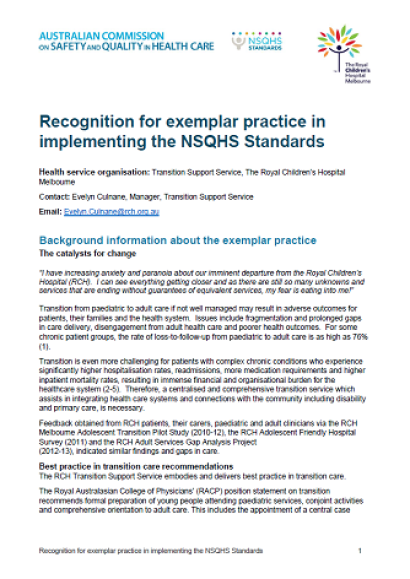Exemplar practice
The awarding of exemplar practice is used to highlight examples of safe and good-quality practice in health services who are implementing the NSQHS Standards, to facilitate the sharing of information between organisations.
Initiatives recognised for exemplar practice
Nominations for exemplar practice by health service organisations implementing the NSQHS Standards are reviewed by an evaluation panel against the criteria outlined in the Policy below.
The following initiatives have been recognised for exemplar practice. Health service organisations recognised are congratulated on this achievement.
Royal Flying Doctor Service SA/NT
Transition Support Service, The Royal Children's Hospital Melbourne
Recognising exemplar practice in health service organisations
This strategy is intended to facilitate the identification and sharing of information on safe and good-quality practice between organisations managing similar issues. During the consultation on the review of the Australian Health Service Safety and Quality Accreditation (AHSSQA) Scheme, health service organisations asked that a mechanism be established to recognise exemplar practice.
Process for nomination
Accrediting agencies will be invited to nominate exemplar practice identified during a health service organisation’s assessment to the second edition of the NSQHS Standards. Accrediting agencies will be required to:
- Notify the health service organisation of the intended submission
- Obtain contact details of the responsible officer for the area of practice being recognised
- Submit the following information to the Commission:
- The name of the health service organisation
- The name of the specific service area where the exemplar practice has been identified
- A concise statement of the exemplar practice
- Contact details for the relevant person(s) in the health service organisation.
The Commission will convene an expert panel to review submissions and contact the relevant health service organisation to invite them to provide further information. If the submission meets the criteria for exemplar practice, and with the health service organisation’s permission, the Commission will:
- Upload a summary of the initiative on the Commission’s website
- Include appropriate contact details for the exemplar organisation so that other health service organisations may review the information, and if appropriate contact them to discuss the initiative in more detail.




